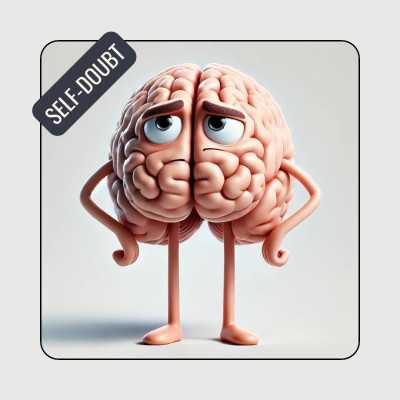
The Power of Mindset | How a Growth Mindset Can Transform Your Response to Setbacks
Life is full of challenges and setbacks. Whether it’s a missed promotion, a failed project, or personal difficulties, how we respond to these challenges makes a significant difference. One of the most powerful tools at our disposal is our mindset.
Embracing a growth mindset can completely transform the way we perceive and react to setbacks, turning potential obstacles into opportunities for growth. Let’s explore the concept of a growth mindset, its benefits, and practical ways to cultivate it in daily life.
Understanding Mindset: Fixed vs. Growth
Before diving into the benefits of a growth mindset, it's important to understand the difference between a fixed mindset and a growth mindset, as defined by psychologist Carol Dweck.
Fixed Mindset
People with a fixed mindset believe that their abilities, intelligence, and talents are static traits that cannot be changed. They often see effort as fruitless and tend to avoid challenges to protect their sense of competence.
Growth Mindset
In contrast, those with a growth mindset believe that their abilities and intelligence can be developed through effort, learning, and perseverance. They embrace challenges and view setbacks as opportunities to grow and improve.
The Benefits of a Growth Mindset
Adopting a growth mindset can have profound effects on various aspects of your life. Here are some key benefits:
Resilience in the Face of Adversity
A growth mindset helps you bounce back from setbacks. Instead of seeing failure as a reflection of your capabilities, you view it as a temporary obstacle and a chance to learn.
Increased Motivation and Effort
Believing that you can improve through effort encourages you to work harder and stay committed to your goals, even when things get tough.
Enhanced Learning and Development
A growth mindset fosters a love of learning and a willingness to embrace new experiences. You're more likely to seek out opportunities for personal and professional growth.
Better Problem-Solving Skills
Embracing challenges and viewing them as learning opportunities can improve your problem-solving abilities and creativity.
Improved Relationships
A growth mindset promotes empathy, open communication, and a willingness to understand and learn from others, leading to healthier and more fulfilling relationships.
Practical Ways to Cultivate a Growth Mindset
Shifting from a fixed mindset to a growth mindset is a journey, but it's one that can be achieved with intentional effort and practice. Here are some practical steps to help you cultivate a growth mindset:
Embrace Challenges
Instead of avoiding difficult tasks or situations, see them as opportunities to grow. Remind yourself that every challenge is a chance to learn something new and improve your skills. Approach challenges with curiosity and a willingness to experiment.
Reframe Setbacks as Learning Opportunities
When you encounter a setback, take a moment to reflect on what you can learn from the experience. Ask yourself questions like:
- What went wrong, and why?
- What can I do differently next time?
- What skills or knowledge do I need to develop to overcome this challenge?
Viewing setbacks as valuable learning experiences can help you stay positive and motivated.
Celebrate Effort and Progress
Acknowledge and celebrate the effort you put into your tasks, regardless of the outcome. Recognize that growth and improvement come from consistent effort and perseverance. Celebrate small victories and progress, as they are stepping stones to larger achievements.
Adopt a "Not Yet" Attitude
When you face difficulties or feel stuck, remind yourself that you haven't mastered the skill or solved the problem "yet." This simple shift in language reinforces the idea that growth and improvement are ongoing processes. It encourages you to keep trying and stay committed to your goals.
Seek Feedback and Learn from Others
Constructive feedback is a valuable tool for growth. Instead of fearing criticism, seek out feedback from others and use it as a guide for improvement. Learn from the experiences and successes of others, and be open to new perspectives and ideas.
Practice Self-Compassion
Be kind to yourself when you face setbacks or make mistakes. Understand that failure is a natural part of the learning process. Treat yourself with the same compassion and understanding that you would offer to a friend. Self-compassion helps you maintain a positive attitude and stay motivated.
Surround Yourself with a Growth-Oriented Community
Surround yourself with people who have a growth mindset and support your journey of self-improvement. Engage with communities, groups, or mentors who encourage learning, resilience, and personal growth. Positive influences can inspire and motivate you to maintain a growth mindset.
Conclusion
The power of mindset cannot be overstated. Embracing a growth mindset can transform your response to setbacks, turning challenges into opportunities for growth and development. By understanding the difference between a fixed and growth mindset, recognizing the benefits of adopting a growth-oriented perspective, and practicing practical strategies to cultivate this mindset, you can unlock your full potential and achieve greater success and fulfillment in life.
Developing a growth mindset is a continuous journey. It requires intentional effort, self-reflection, and a willingness to embrace challenges. But with persistence and dedication, you can transform the way you view setbacks and create a more resilient, motivated, and empowered version of yourself. So, the next time you face a setback, take a deep breath, remind yourself of the power of a growth mindset, and see it as an opportunity to learn and grow.






Leave a comment